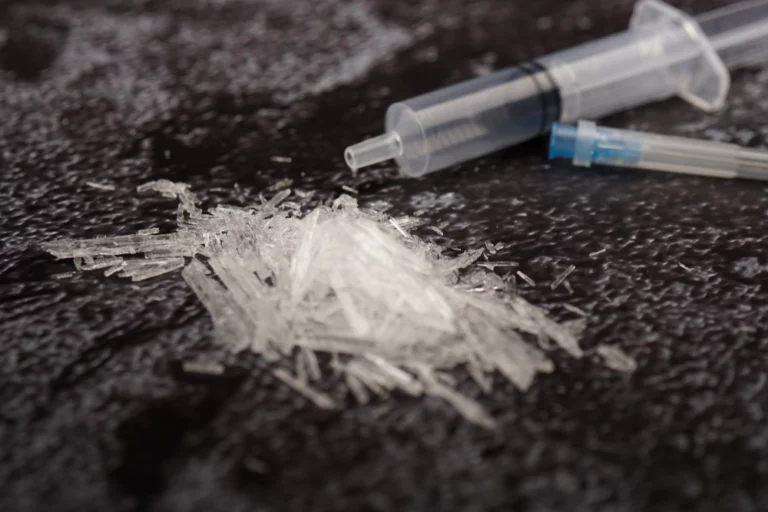Life After Rehab
Life after rehab marks a significant milestone in one’s journey towards sobriety and mental wellness. Transitioning from structured treatment to independent living comes with its own set of challenges and opportunities. In this comprehensive guide, we’ll delve into the various aspects of life after rehab, focusing on the nuances of transitioning to independent living, maintaining sobriety, prioritizing mental health, engaging in continued therapy, practicing self-care, navigating everyday challenges, building healthy relationships, rediscovering purpose and passion, creating a structured routine, celebrating milestones and progress, preparing for challenges and setbacks, seeking support and accountability, and exploring vocational opportunities.

Embracing Independence
Life after rehab unfolds as a landscape of both freedom and challenge, where individuals set out on a journey towards newfound independence while grappling with the complexities of staying sober. Within this pivotal period, the importance of recognizing available support systems and setting healthy boundaries cannot be overstated.Embracing independence in the aftermath of rehab is a complex task. It’s more than just asserting independence; it requires actively working to rely on oneself while also accepting help from supportive networks. It’s about understanding that independence doesn’t mean going it alone but rather collaborating with others to maintain recovery.
At its core, embracing independence means taking control of one’s healing journey within the recovery process. It involves using the tools and skills learned during rehab while also holding oneself accountable for progress. This means being open to seeking advice, celebrating achievements, and dealing with setbacks with strength and determination. Transitioning to independent living after rehab calls for finding a balance between self-reliance and community support. It involves setting clear boundaries to protect sobriety while also being open to advice and assistance from others. Embracing independence is about finding harmony between personal empowerment and support from others. In navigating this journey, it’s important to see independence not as a solo adventure but as a shared experience. It’s about finding a balance between self-discovery, resilience, and the support of a caring community. This balance is where the true essence of post-rehab independence lies.
Dealing with Loneliness and Isolation
Loneliness and isolation are common emotions for individuals after rehab, particularly if they’ve had to distance themselves from past relationships that were tied to substance use. These feelings can be difficult to manage, but it’s important to recognize that they are temporary and can be overcome with intentional action. Engaging in community activities, hobbies, or volunteer work can provide a sense of purpose and help foster new connections. Support groups, both in-person and online, are also a great way to meet others on similar recovery journeys and reduce feelings of isolation. Building a supportive social network can take time, but staying active and reaching out for support will help ensure you don’t navigate recovery alone.
Maintaining Sobriety
Maintaining sobriety is paramount in the journey of life after rehab. It stands as a cornerstone, requiring individuals to remain steadfast in implementing the strategies and coping mechanisms acquired during their treatment to stave off the looming threat of relapse. This endeavor demands unwavering commitment and dedication, as individuals navigate the challenges of everyday life without the crutch of substance use.In the pursuit of sobriety post-rehab, individuals are tasked with drawing upon the arsenal of tools and techniques honed during their time in treatment. These may include attending support group meetings, where shared experiences and mutual encouragement serve as pillars of strength. Additionally, seeking ongoing therapy offers a vital outlet for processing emotions and navigating the complexities of recovery.

Prioritizing Mental Health
In life after rehab, prioritizing mental health becomes paramount as individuals transition to independent living and follow their aftercare plan. Handling stress, anxiety, and other mental health challenges necessitates proactive steps like therapy, mindfulness, and self-reflection. It’s crucial to understand when to seek help and engage in activities that enhance emotional well-being.
Continued therapy remains essential in life after rehab. Whether through individual counseling or group sessions, ongoing therapy offers invaluable support and guidance. It reinforces the skills acquired during rehab and provides a safe space to address ongoing challenges. Maintaining connections with professionals and peers further enriches the journey to mental wellness, offering valuable insights and encouragement along the way.
The Role of Physical Health in Recovery
Physical health plays a vital role in supporting mental well-being and maintaining sobriety in life after rehab. Regular exercise is proven to reduce stress, anxiety, and depression—all of which can be triggers for relapse. Incorporating physical activities like walking, yoga, or swimming into your daily routine can significantly enhance your recovery journey. In addition to exercise, proper nutrition is key to ensuring your body functions at its best. A balanced diet that includes a variety of nutrients helps repair any physical damage caused by substance use and supports overall health. Sleep is another critical component—adequate rest allows the body and mind to rejuvenate, which in turn promotes emotional stability and resilience in recovery.
Managing Finances After Rehab
One of the most significant challenges many individuals face after rehab is managing their finances. Financial stress can be a trigger for relapse, making it essential to develop a solid plan for financial independence. Creating a budget that accounts for necessities, savings, and discretionary spending can help provide clarity and reduce anxiety. For those dealing with past debts, it may be helpful to seek financial counseling to establish a plan for paying them off while maintaining financial stability. Additionally, navigating employment after rehab may be challenging, and individuals should explore available resources like vocational rehabilitation programs, job placement services, or financial assistance programs. By taking control of financial matters early, individuals can reduce stress and focus on maintaining their sobriety.
Rebuilding Your Career After Rehab
For many individuals, returning to work or starting a new career after rehab is a crucial part of re-establishing independence and financial security. Transitioning back into the workforce can be challenging, but it’s important to set realistic goals and take gradual steps. Consider vocational training programs designed to help individuals in recovery build new skills and explore career opportunities. If you’re re-entering a previous job, it’s essential to communicate openly with your employer about any accommodations you might need to support your recovery, such as flexible hours for therapy or group meetings. If you have gaps in your employment due to rehab, approach potential employers with honesty and confidence, emphasizing the personal growth and skills you’ve gained through your recovery journey.
Practicing Self-Care
Self-care is an indispensable component of one’s journey towards recovery and overall well-being, especially in life after rehab. It encompasses a range of practices aimed at nurturing the body, mind, and spirit, each playing a pivotal role in maintaining sobriety and achieving personal growth. Prioritizing self-care involves consciously allocating time and energy to activities that promote physical, mental, and emotional health in the context of life after rehab. This includes engaging in regular exercise to strengthen the body and alleviate stress, as well as adopting a balanced and nutritious diet to fuel optimal functioning. Adequate rest is equally vital in life after rehab, allowing the body to recharge and rejuvenate, while relaxation techniques such as meditation and deep breathing help to cultivate inner calm and resilience.

Building Healthy Relationships And Goals
Building healthy relationships is another vital component of post-rehab life. These connections are essential for creating a fulfilling and supportive environment. To foster healthy relationships, individuals must learn to set boundaries, communicate effectively, and cultivate supportive connections. This involves both giving and receiving support, building trust and understanding, and nurturing connections that contribute positively to one’s recovery journey. By prioritizing healthy relationships, individuals can create a strong support system that aids in their ongoing journey towards sobriety and well-being.
Navigating everyday challenges is a crucial aspect of life after rehab. From managing relationships to handling financial responsibilities, individuals encounter a variety of obstacles that require practical solutions. Setting goals, establishing routines, and seeking support when needed are key strategies for overcoming these challenges. By approaching difficulties with resilience and resourcefulness, individuals can not only surmount obstacles but also thrive in their recovery journey.
Coping with Triggers and Cravings
Dealing with triggers and cravings is a crucial part of maintaining sobriety in life after rehab. Triggers can come in many forms—people, places, emotions, or situations that remind you of past substance use. It’s important to learn how to identify your personal triggers and develop coping strategies to manage them when they arise. Some effective techniques include mindfulness practices, deep breathing exercises, and engaging in healthy distractions like physical activity or creative outlets. Having a plan for high-risk situations, such as social gatherings where alcohol may be present, can also help you maintain control. It’s essential to understand that cravings are a normal part of recovery, but they can be managed with the right tools, support, and self-awareness.
Rediscovering Purpose and Passion
Rediscovering purpose and meaning after rehab involves a profound journey of self-exploration and growth. It’s a time when individuals have the opportunity to reconnect with their passions, set new goals, and embrace experiences that bring them joy and fulfillment. This journey requires delving deep within oneself, identifying personal values, and aligning actions with aspirations. By rediscovering old interests and exploring new ones, individuals can pave the way for a more fulfilling life journey.
Setting new goals becomes paramount in this process, providing direction and motivation. These goals serve as beacons guiding individuals towards personal growth and development. Embracing new experiences outside of one’s comfort zone adds richness to life and fosters a greater appreciation for the beauty of existence. Ultimately, by aligning actions with personal values and aspirations, individuals can live authentically and find true fulfillment on their journey of recovery and self-discovery.

Celebrating Milestones and Progress
Recognizing and celebrating milestones, regardless of their size, plays a pivotal role in sustaining motivation during the journey of recovery. These milestones signify progress and signify the effort put forth in overcoming obstacles. Expressing gratitude for these achievements not only reinforces positive behavior but also cultivates a sense of accomplishment, bolstering the individual’s resolve to persevere towards their goals. Rewarding oneself for the dedication and hard work invested further solidifies the importance of these milestones, fostering a cycle of encouragement and progress that fuels continued growth and development. Through acknowledging these milestones, individuals are empowered to navigate the challenges of recovery with renewed determination and resilience.
Navigating Family Relationships After Rehab
Rebuilding relationships with family members after rehab is often a complex and emotional process. During active addiction, trust may have been broken, and family dynamics may have been strained. In life after rehab, addressing these issues requires patience, honesty, and open communication. It’s important to take steps to rebuild trust by being consistent and transparent about your recovery process. Family counseling or therapy can be invaluable for working through unresolved conflicts and fostering healthier relationships. Setting clear boundaries is also essential—both for your recovery and to ensure that family relationships are positive and supportive. By nurturing these connections with care, individuals can strengthen their support system and create a more harmonious family dynamic as part of their recovery journey.
Seeking Support and Accountability
In life after rehabilitation, having support from peers, family, friends, and professionals is crucial for continuing care. Surrounding yourself with people who understand and back your recovery goals is essential for staying on track. Seeking support means not hesitating to ask for help when needed, being honest about your challenges, and actively participating in support groups and therapy sessions to maintain your continuing care.
Group therapy is especially helpful after rehab, providing a space to connect with others facing similar struggles and ensuring continuing care. In these sessions, you can share experiences, gain insights, and receive encouragement from people who truly understand what you’re going through. It’s also important to stay connected with peers in recovery for continuing care, as they can provide ongoing support and help you stay accountable to your goals. By staying in touch with others on the same journey, you can draw strength from each other and build a supportive community that keeps you moving forward in your continuing care journey.
Conclusion
Life after rehab is a journey filled with challenges, growth, and self-discovery. It’s about embracing newfound independence while making sobriety and mental health top priorities. Staying committed to ongoing therapy, practicing self-care, and navigating daily hurdles are all key components of this journey. With the right support systems and coping strategies in place, life after rehab can indeed be deeply rewarding and fulfilling.
Remember, recovery isn’t a destination; it’s a lifelong journey. Every day presents an opportunity to learn, grow, and renew your commitment to a healthier lifestyle. By surrounding yourself with understanding friends and family and staying connected with fellow peers in recovery, you’re equipping yourself with the tools and support needed to navigate life’s twists and turns with resilience and strength. Embrace each day as a chance for progress and transformation, and you’ll find yourself on a path toward a brighter, more hopeful future.








